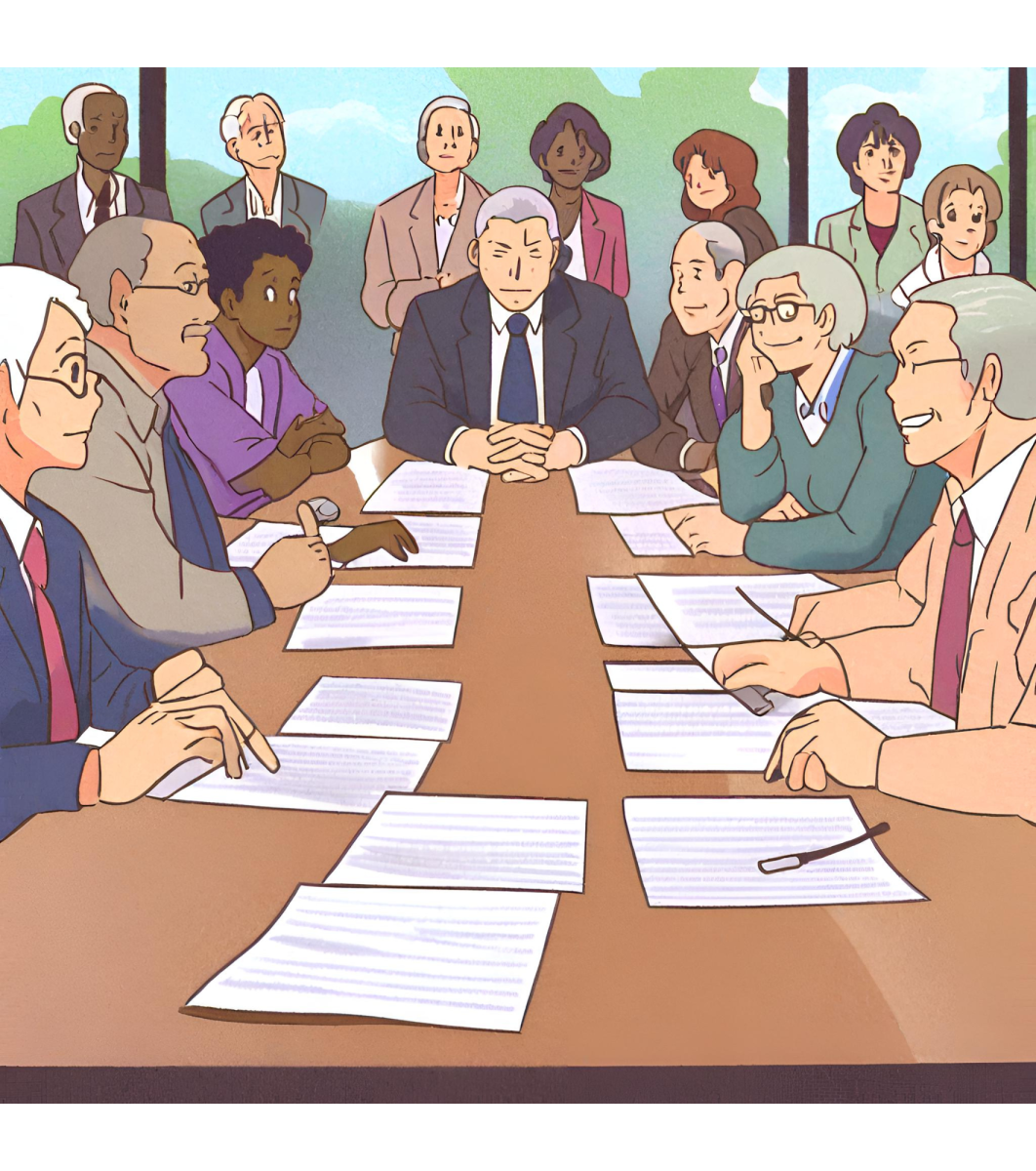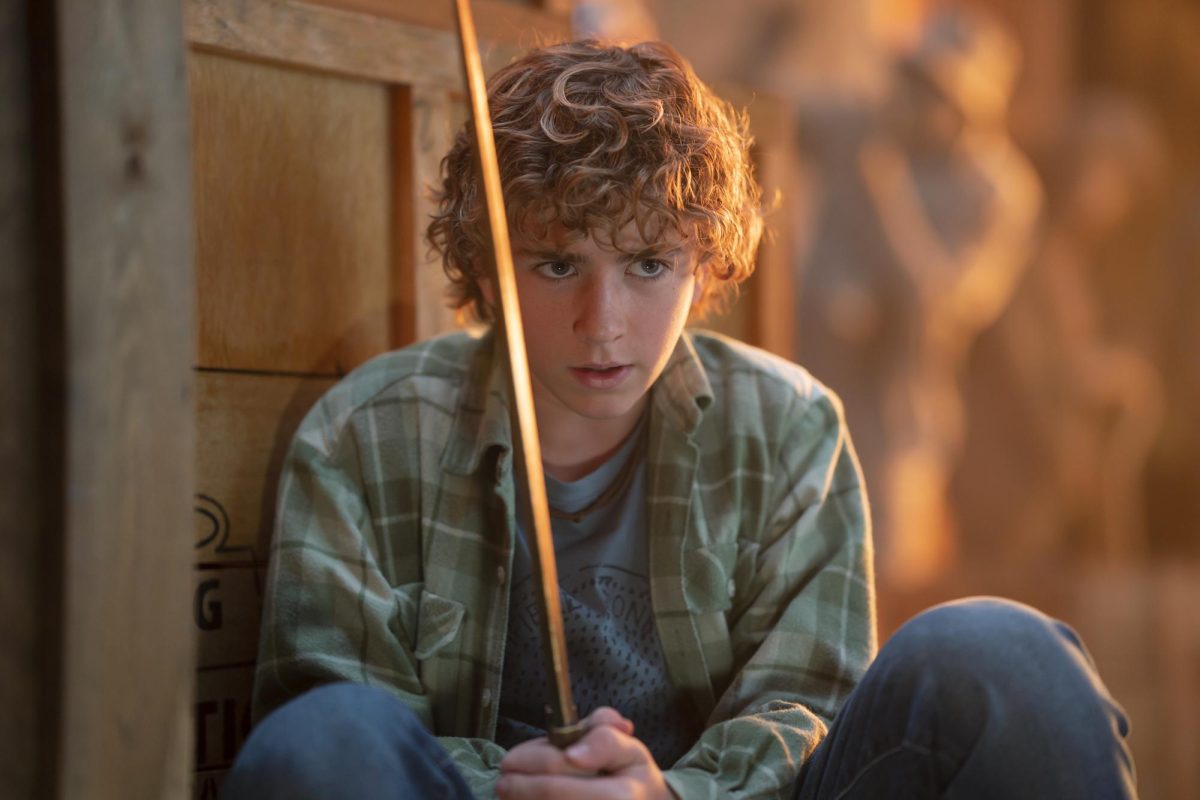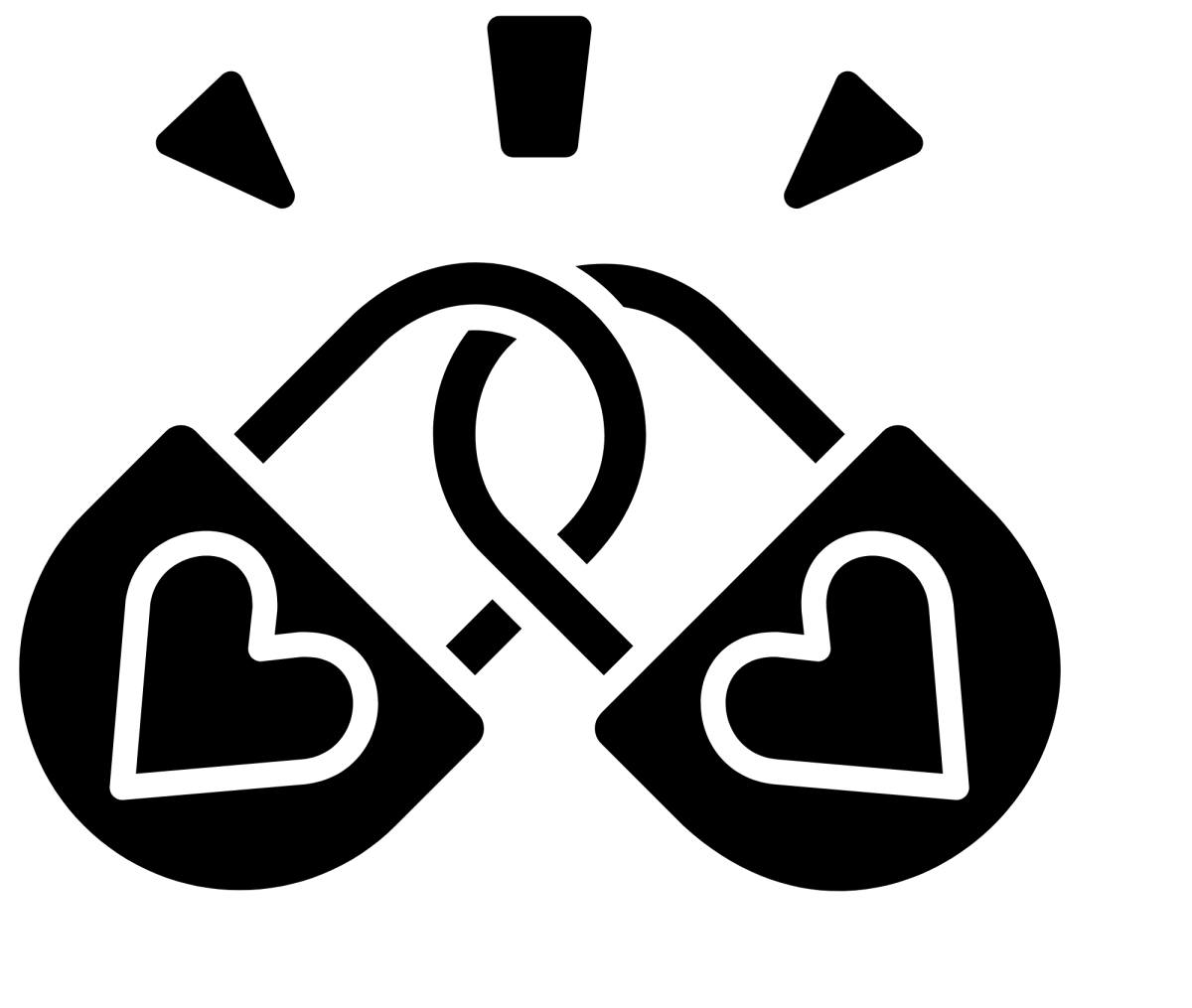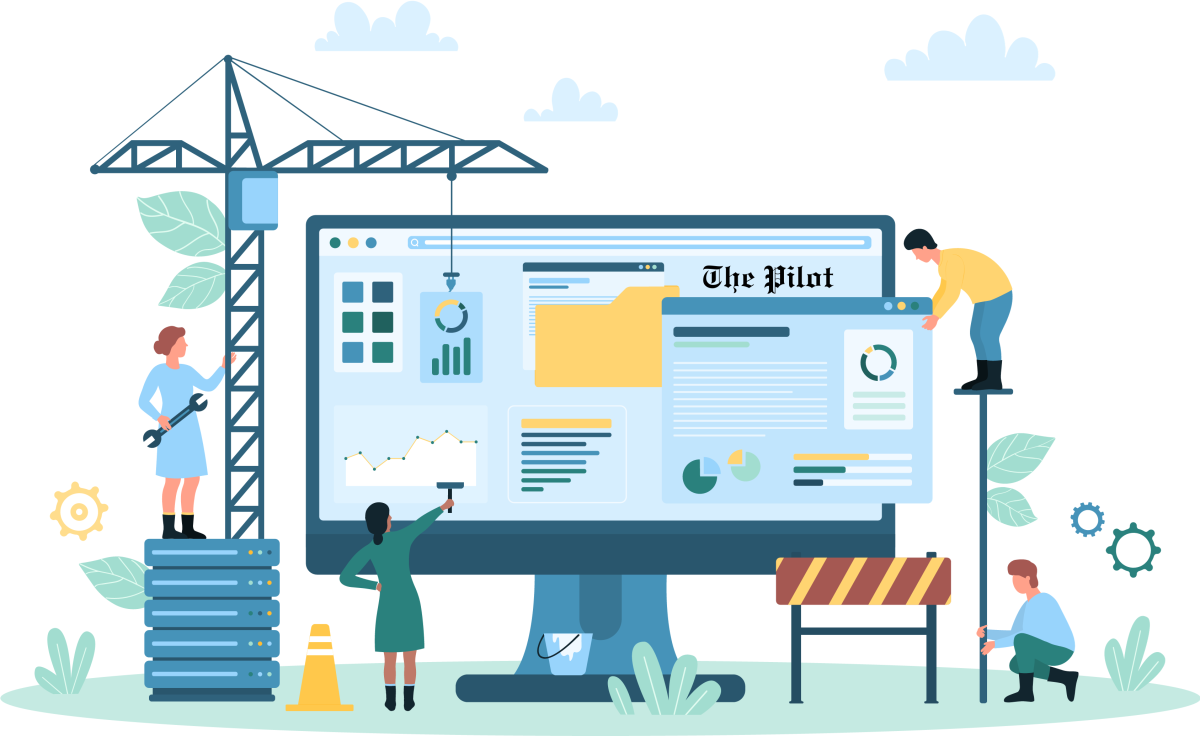Sustainability is one of those buzz words that floats around in our minds these days. For some, it’s an ambiguous word with a somewhat elusive definition used to show how one cares about the global community. For others it’s a way of life. Whether or not it’s understood or can even be used in a sentence are illustrations of its complexity. Dr. Geoffrey Chase, Dean of Undergraduate Studies and the Director for Regional Sustainability at San Diego State University, gave a talk on sustainability on Thursday, April 19, in Wanamaker Hall.
“My quick definition of sustainability,” said Dr. Chase, “is that it is about making sure that we have … adequate resources for health, economic vitality, social justice, those kinds of things, and that we pursue that in a way today that ensures that future generations also have access to those goods and resources.”
Dr. Chase’s ability to concisely explain what sustainability is all about is noteworthy, but even the explanation he gives is loaded. For example, many people may not understand the relationship between sustainability and social justice. Part of the mystery of sustainability is that it is applicable to concepts with which it may appear to have no relationship.
“[Sustainability is] longitudinal as well as immediate. My sense is that if you have a situation where what you’re trying to do is provide the most good to the most people [and] then [there are] situations in which social injustices are not doing that, … those situations, therefore, are not sustainable. The example I use [is] in San Diego. Let’s imagine that I’m running for city council, and the unemployment is running around 10 percent, and I say, ‘Well, I’ve got a way to create jobs which will bring money into the city, and that way is to build a six-lane highway through Barrio-Logo in South San Diego.’” Dr. Chase continued: “Barrio-Logo is where a number of Mexican Americans live. So you take that community and in order to create jobs for [a few] you disrupt the [entire] community.”
From Dr. Chase’s comments, it’s immediately apparent that sustainability is an all-encompassing part of our world. The realm of sustainability lies beyond just environmental issues. Every decision made by every person is either sustainable or not sustainable. The decision to play video games and shirk homework, the decision to not eat dessert tonight, the decision to sleep instead of exercise – sustainability is inherent in all of those decisions. This brings light to the phrase coined by Dr. Chase: “Sustainability is having the foresight to focus on the present.”
“So when I said having the foresight to focus on the present,” explained Dr. Chase, “since we can’t change the future because it hasn’t happened and because we can’t change the past because it already has [happened], my notion is that living sustainability means having the foresight, which means looking ahead but then focusing on what we do here today and the decisions we make today for a more sustainable world.”
It would seem from Dr. Chase’s explanation that sustainability is, in essence, taking the time to consider the consequences of our decisions. Being thoughtful is something that everyone can understand and appreciate.
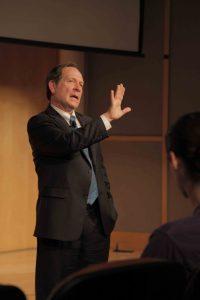
Dr. Chase explained that some of the biggest challenges facing our world today are overpopulation coupled with our reliance on fossil fuels. Rising population levels create concerns because of the way we consume resources. While this is certainly a valid point, some may argue that the overall welfare of people worldwide is greater today than ever before, and there are many more people today than have ever lived. How then can you attribute population as a sustainability problem? The fact is that it’s not just about population but more importantly, consumption. Consumption by the average American is much greater than the rest of the world’s citizens, and that is something we cannot afford.
Dr. Chase said: “We are not asked often enough to think about our own individual roles within any system. The critical part of higher education is to help students develop the commitment to make changes, and to propose strategies and solutions knowing that all of those will be imperfect. The engagement is really critical because it does make a difference, but it’s not just a switch. The worst thing we can do is to scare students to a point of paralysis, to the point where they say ‘it doesn’t matter what I do,’ because it does matter.”
While sustainability is further integrated in other college curriculums across the U.S., Principia has many opportunities to integrate sustainability into its community. Students appear to have several distinct advantages for creating a sustainable campus.
“Your smallness gives you a scale that’s really workable, so it’s easy to talk to a large part of the campus very quickly,” said Dr. Chase. “It’s clear that the students and the faculty know each other, so you have a community here. You have a lot of natural beauty and that should be a place to start the conversation. You also have a campus that has a rich and important history and a distinct mission, and that’s another place to start this conversation.”
For many students and alumni, this campus represents much more than just a distinct mission or a place of historical significance and natural beauty. It represents higher qualities of Truth and Love. Interestingly enough, much of what Dr. Chase has to say about sustainability applies to these concepts, even if only indirectly.
“At the end of the day, sustainability for me is really about community. It’s about building community and it’s about relationships. On a campus of this size I think … the possibility for campus conversations is really powerful,” added Dr. Chase.
Although challenges will certainly present themselves due to the fact that the field of sustainability is constantly evolving, these obstacles can be largely overcome by a unified effort. This is especially true if students really have a desire to integrate sustainability into campus life.
According to Dr. Chase: “If we do it well, sustainability is a win-win. Sometimes we get trapped in our own egos, and we want to move sustainability ahead [a certain way]. [But] the ability to stay with the community rather than to dismiss it because it’s not going the way you want it to go [is important].”


